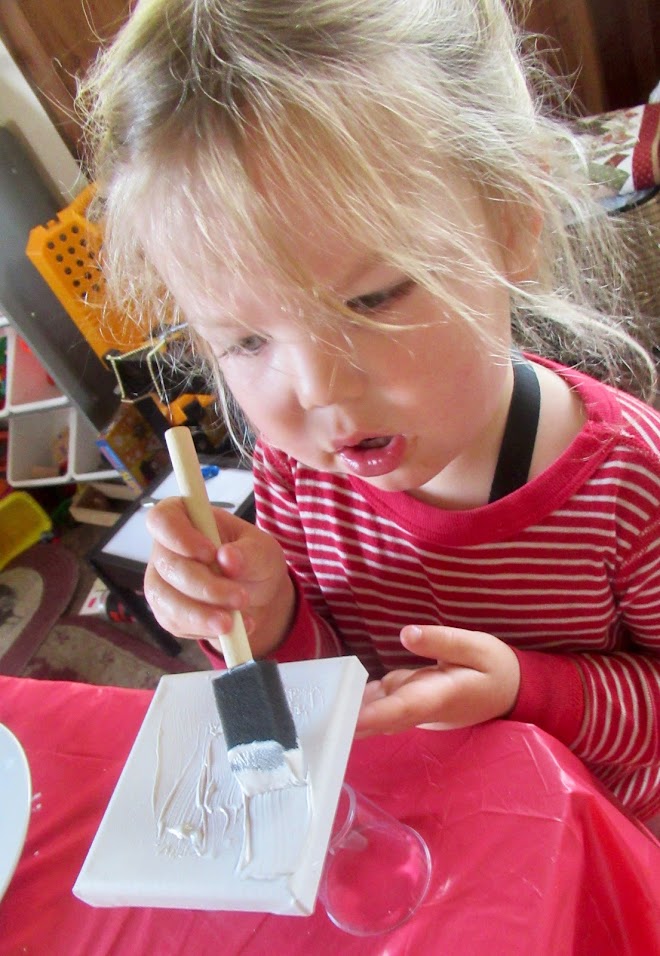"Dirty Dog"
Having posted three installments on Grandpa’s manuscript, this fourth one really has no theme, except to revel in the content of the journal itself, marveling at the kinds of experiences this stalwart man encountered.
His opening paragraph sets the stage for Grandpa’s voyage of discovery, as he describes his first impressions of America. He writes, “My ship (KoeniginLuise) docked in New York on the Fifth of July [1901]. The air was still filled with fireworks of one kind or another, and I wondered what was going on.”
Later, on the same page, “Niagara Falls was the end of the first leg of my journey, and since every one left the train, I followed as about the last passenger. The conductor, standing on the platform, asked me a question to which I answered, ‘Yes,’ which caused him to say in German, ‘Oh, there you are. I have been looking all over for you; your train is over there and it will take you all the way to Chicago.’”
Interesting that the conductor had been seeking Grandpa. Why would he have had any reason to be looking for a fourteen-year-old boy, who spoke no English? My guess is that either those wealthy relatives in Sioux City, or Grandpa’s Uncle Joseph, who was the superintendent of the big switching yard in Altenhuden, back in Germany, had some influence along the tracks.
Grandpa writes about Uncle Julius, whom he described as “a wonderful family man and father to his children (who are my cousins).” Grandpa added, “Let me state right here and now, couched in the language of an old German saying, I would ‘put my hand in the fire’ for him.”
 |
| This might have been the runabout... |
Included in the description of his uncle's world, was this account: “The distance from the Eidt home to the shop was about five miles. “Kitty” pulled the top-less runabout wagon which was our transportation. About two miles of the way was unpaved road, which was a quagmire after any rain, and was worst in spring and fall, what with the oozing black gumbo [!] which would freeze over night into the most fantastic patterns.
When enough snow had fallen, we would put the “runners” in place of the wheels and hang sleigh bells on Kitty. The temperature sometimes dropped to thirty below zero. We had to dress warm. In spite of which I had frozen toes and earlobes for weeks, but these finally got well.”
Sioux City, in 1901, could best be described as a “wide-open” western town, with gambling houses and many saloons, where minors and ladies were not allowed. There were other “houses” which were not as blatantly run, but they were there just the same. The geographical location [of Sioux City] was the intersection of Iowa, South Dakota and Nebraska, where the Big Sioux joins the Missouri.
There was an Indian reservation (Rosebud) near, and an Indian Burial Ground about a mile north of the city…Spring was here when the Indians came over from the reservation. There was a wild fight one day when a bunch of braves came to celebrate with fire water at Burt Hammil’s Saloon.
One of the hangers-on tried to get friendly and asked one of the braves, “What’s your name?” and he told him, and then the fight started. It turned out that the Indian’s name was Dirty Dog, and the drunk thought he was being called a name.”
One of the hangers-on tried to get friendly and asked one of the braves, “What’s your name?” and he told him, and then the fight started. It turned out that the Indian’s name was Dirty Dog, and the drunk thought he was being called a name.”
Grandpa’s manuscript is invaluable for not only its relevant content, but because once more we see the power of the pen in action. His account of everyone on the ship being excited by seeing Liberty; his description of the vile working conditions in the stove shop; his portrayal of bravery and his overwhelming sense of familial duty, all resound in his manuscript.
It’s enough to inspire a guy to do a little writing himself.
















































